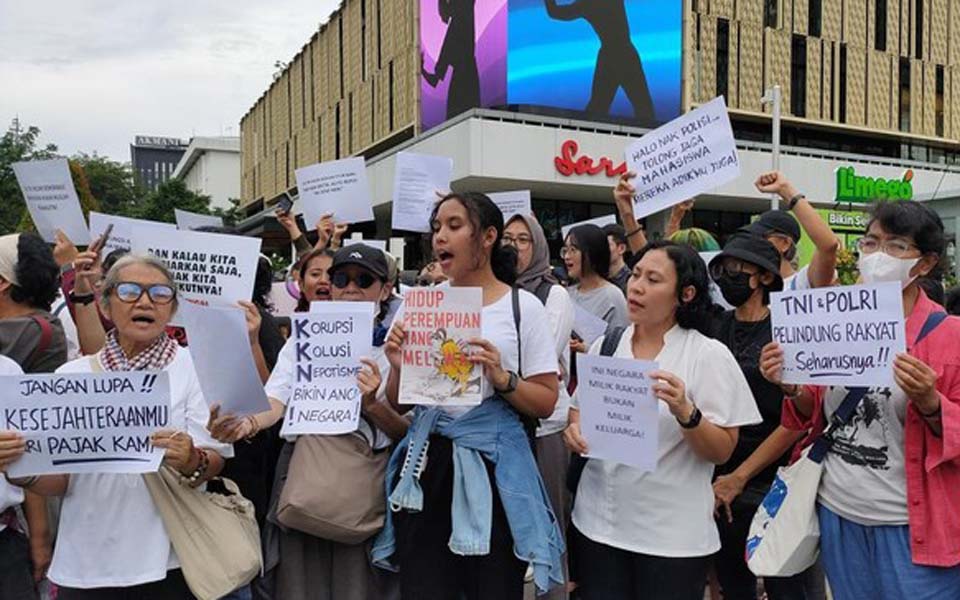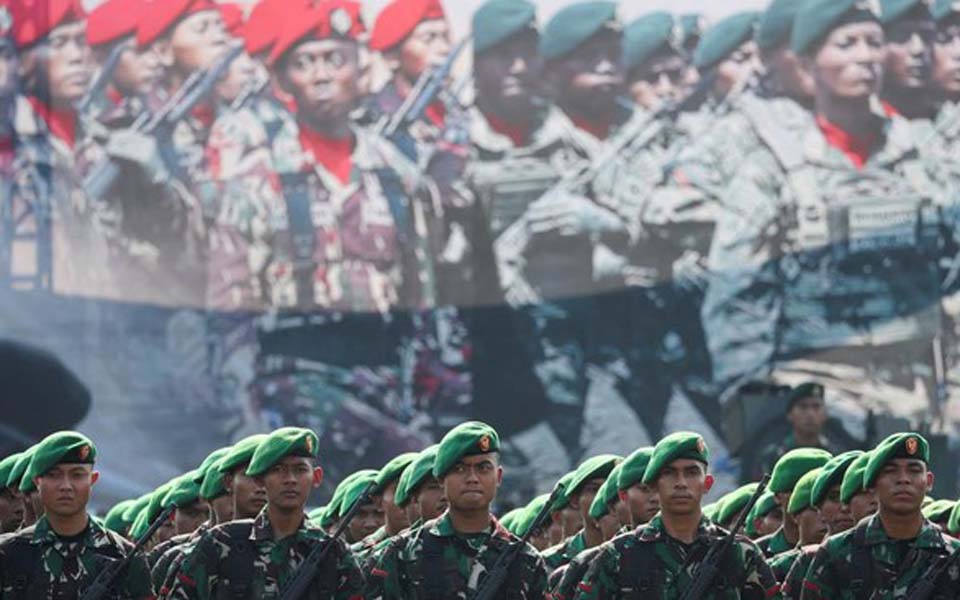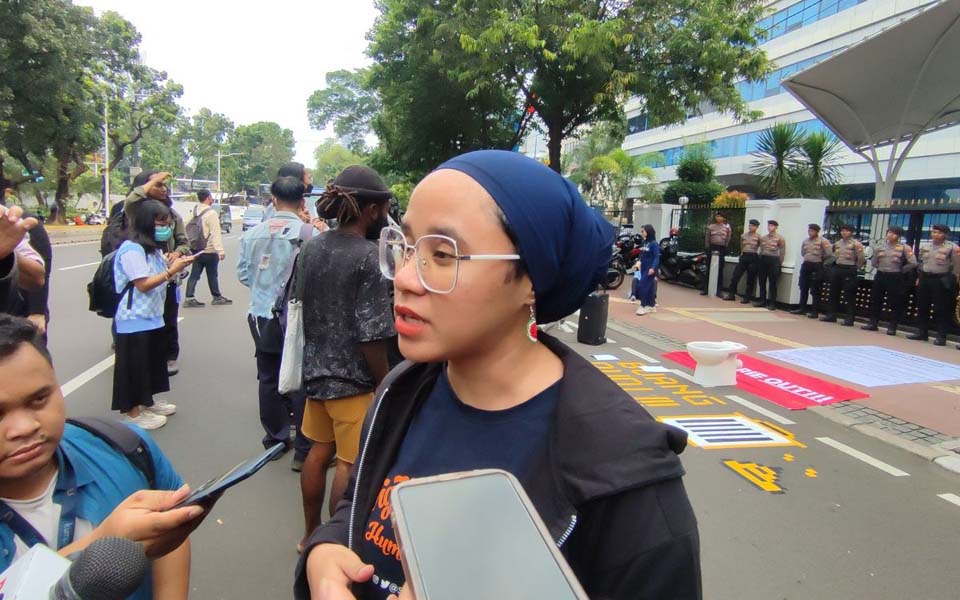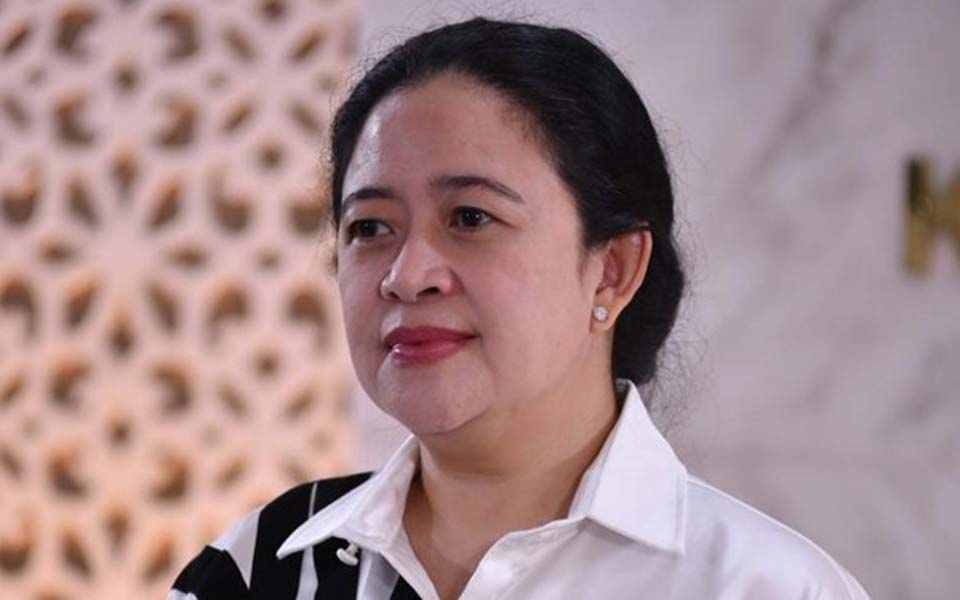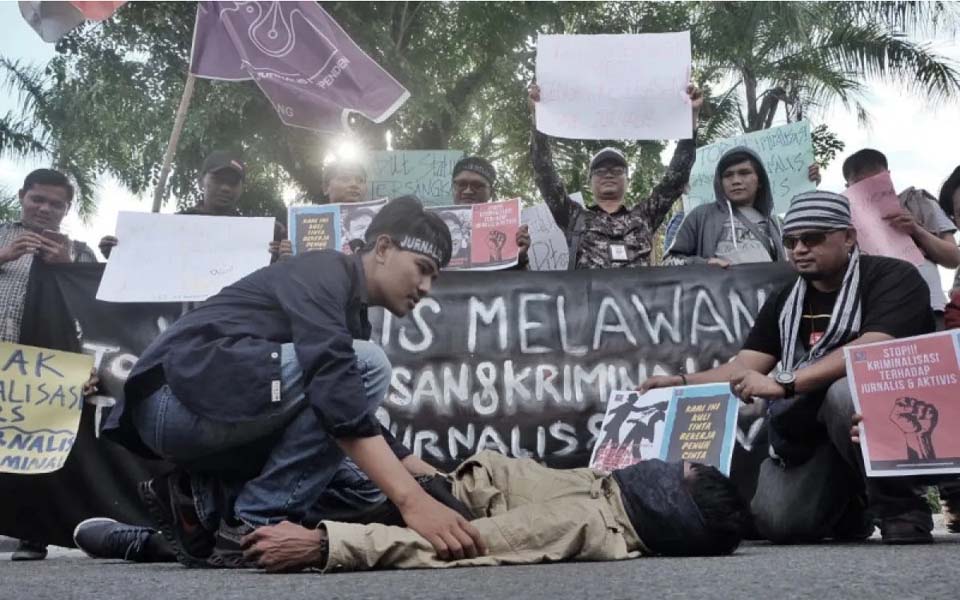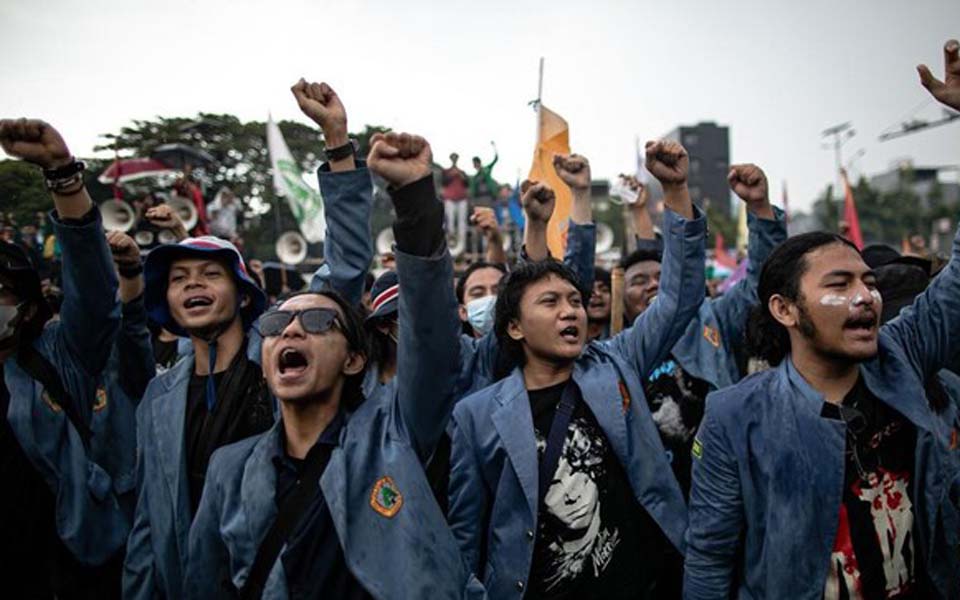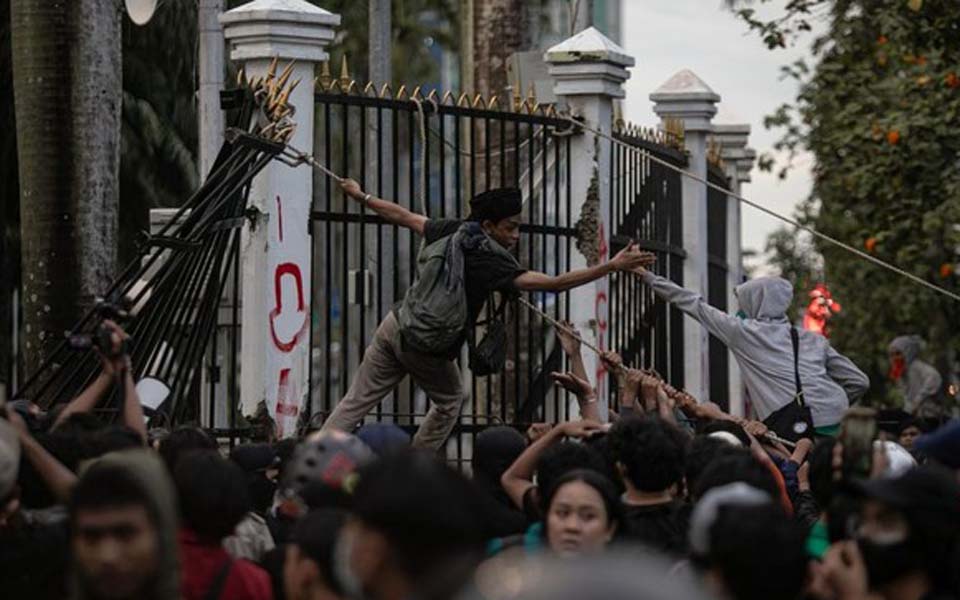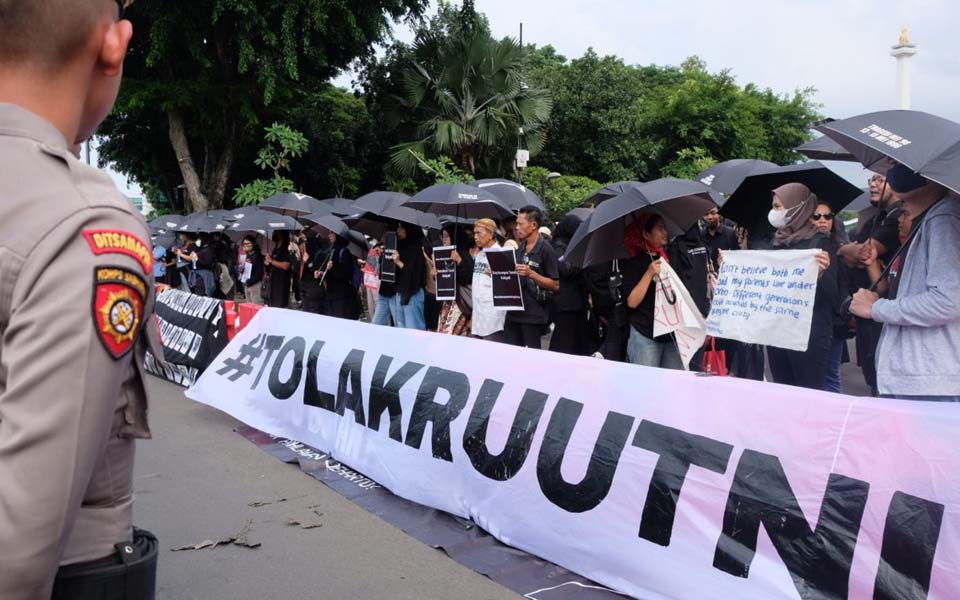Achmad Nasrudin Yahya, Jakarta – The Civil Society Coalition for Security Sector Reform is asking the House of Representatives (DPR) to cancel deliberations on revisions to Law Number 34/2004 on the Indonesian Military (TNI).
"We are of the view that the DPR [should] cancel and review the agenda on the revisions to the TNI Law, considering that this is not an urgent agenda [that needs] to be done at this time", said Centra Initiative Chairperson Al Araf in a press release on Monday May 20.
According to Araf, the substance of the changes proposed by the government will not strengthen the TNI's reform agenda that has been underway since 1998, but do the exact opposite instead.
Instead of encouraging the TNI to become a professional national defense tool, a number of the proposed changes are considered to be a setback for the TNI's reform agenda.
Based on the Coalition's notes, there are four crucial points that are seen as reversing the TNI's reform agenda, referring to the latest draft of the revisions to the TNI Law in April 2023.
First, the expansion of the TNI's function as a state tool in the field of national defense and security.
Araf said the revisions to the TNI Law, which include expanding the function of the TNI to also cover state security is wrong. In a democratic country, the military's function is as a tool of national defense that is prepared, educated and trained for war.
"Therefore, placing the function of the military as a state security tool is wrong and endangers democracy, because the military can be used against people if they're judged to be a threat to state security", he said.
Second, revoking the president's authority to deploy and use TNI forces.
Araf said that the existing provisions on the authority of the president should be maintained and should not be removed from the TNI Law as an organic regulation governing the TNI.
The amendments to Article 10 of the 1945 Constitution state that the president holds the highest authority over the army, navy and air force.
In his position as the holder of the highest authority over the armed forces, Article 14 of Law Number 3/2022 on National Defense confirms that the president is authorised and responsible for the mobilisation of TNI forces.
"By abolishing the authority for the deployment and use of the TNI by the president in the TNI Law, this is dangerous because it will place the deployment and use of the TNI outside the approval and control of the president as head of state and head of government", he said.
Third, the expansion and addition of the types of military operations other than War (OMSP).
Araf stated that the proposed changes to Article 7 Paragraph (2) and Paragraph (3) of the TNI Law that expanded and add to the scope of OMSP shows the paradigm and political desire to expand the involvement and role of the military beyond the national defense sector.
This can be seen from the addition of 19 types of OMSPs from the previous 14 types that can be carried out by the TNI.
"Moreover, some of these additions are not related to military competence, such as tackling narcotics, precursors and other addictive substances, as well as efforts to support national development", he asserted.
Fourth, the expansion of civilian positions that can be held by active TNI officers.
According to Araf, the proposed changes that provide opportunities for the TNI to occupy more civilian positions as stated in Article 47 Point 2 of the bill could open up space for the return of ABRI's dwi-fungsi (dual socio-political function) as was practiced during the New Order authoritarian regime of former president Suharto.
"It's important to remember that during the New Order, based on ABRI's dwi-fungsi doctrine, the military was involved in practical politics, one of which was by occupying civilian positions in ministries, state institutions, the DPR, as regional heads and other positions", he added.
[Translated by James Balowski. The original title of the article was "Masyarakat Sipil Minta DPR Batalkan Pembahasan Revisi UU TNI karena Bahayakan Demokrasi".]






